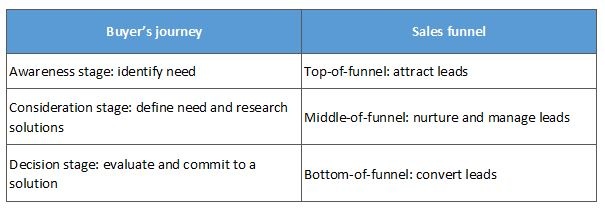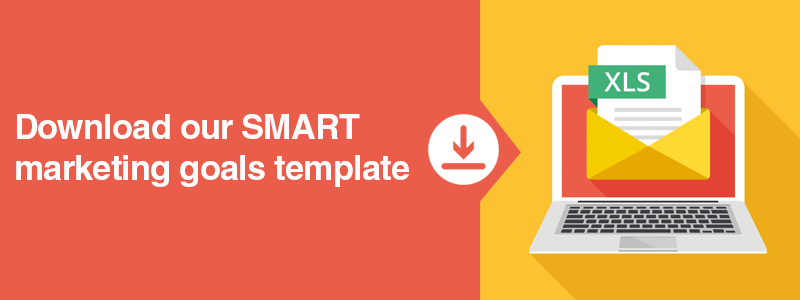Is your primary B2B marketing goal to drive sales? Probably – but unless you define it more specifically, it may be hard to achieve. Eighty-five percent of B2B marketers cite lead generation as their most critical marketing goal. But to choose the goals that are most relevant for your organization – whether it’s B2B lead generation, closing sales, or improving customer satisfaction - you need to start from an in-depth understanding of your organization and the environment in which you’re operating.
Start with your business goals
What are your organization’s goals for this year? Perhaps the number one goal is a sales increase, or to reduce customer churn, or to increase customer satisfaction. Or maybe it’s to increase market share to a specific number. Whatever the goals, make sure you understand the history and environment relating to each of them.
Look at your competitors
Make a list of your competitors, and conduct a competitive analysis on each of them. Look at their history, their successes and failures, their marketing approaches, and their people. When it comes to thought leadership, how do they compare to you? Itemize their strengths and weaknesses. That way, when you plan your marketing activities, you can ramp up in areas where your competitors have left a vacuum.
Define your buyer personas
Who are your customers? What do they want? Why do they want it? Create a persona for each of your customer types, with as much detail as possible.
Each persona should include:
- What motivates this person
- Their goals
- What hurdles they typically face, what are their pain points
- Channels and social media they use for information
- Their background, job history and education
Some marketers even base their personas on an actual customer. You could interview your ideal customer to flesh out your persona, or just use what you know about them, and what you can easily discover online.
Map your buyers’ journey to your sales funnel
These are two ways of looking at the same process. The buyer’s journey looks at the process from the buyer’s point-of-view, while the sales funnel represents your internal processes.

The stage(s) you decide to focus on will depend on your business and sales goals. If lead generation is your top priority, for example, you’ll want to focus on awareness/the top of the funnel. If your business goals are to increase customer satisfaction or efficiency, you’ll need to dig a little deeper to know where in the process you should focus your resources.
Set your SMART goals
Now that you’ve gathered all the necessary background and insight, you’re ready to create your marketing goals. These goals will form the backbone of your marketing plan.
The SMART marketing goal template takes you step-by-step through a short series of questions to outline your B2B marketing plan. The resulting marketing action plan will be fully aligned with your business goals, including your marketing and competitive environment, and will identify the funnel stages on which you should focus your marketing resources.



.png?width=1080&name=Rebranding%20LS-3-Profile%20pic%20(1).png)